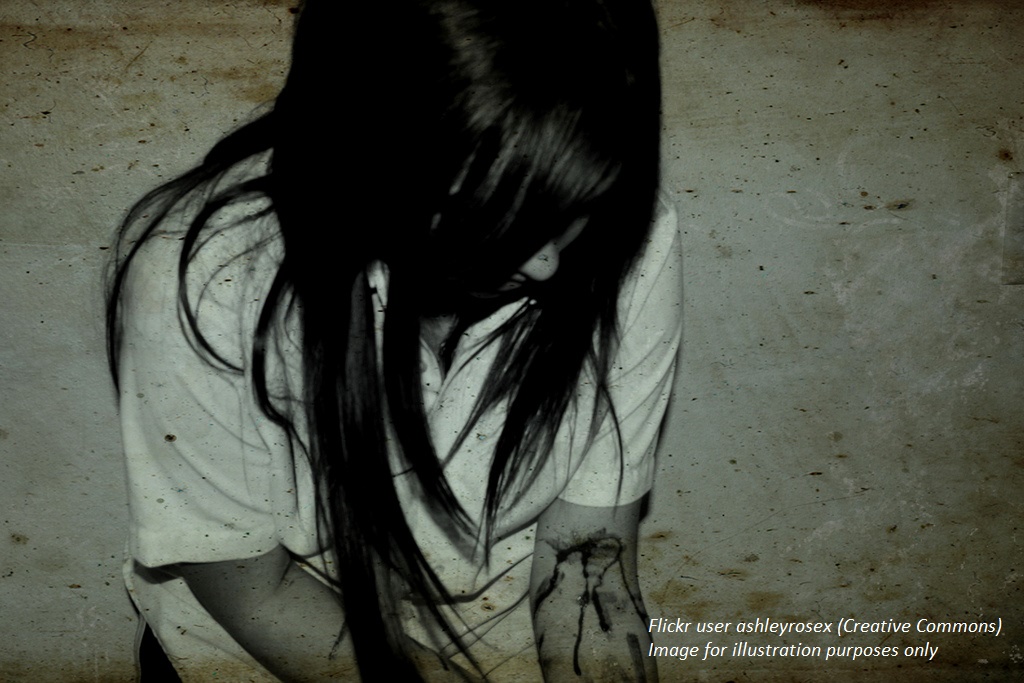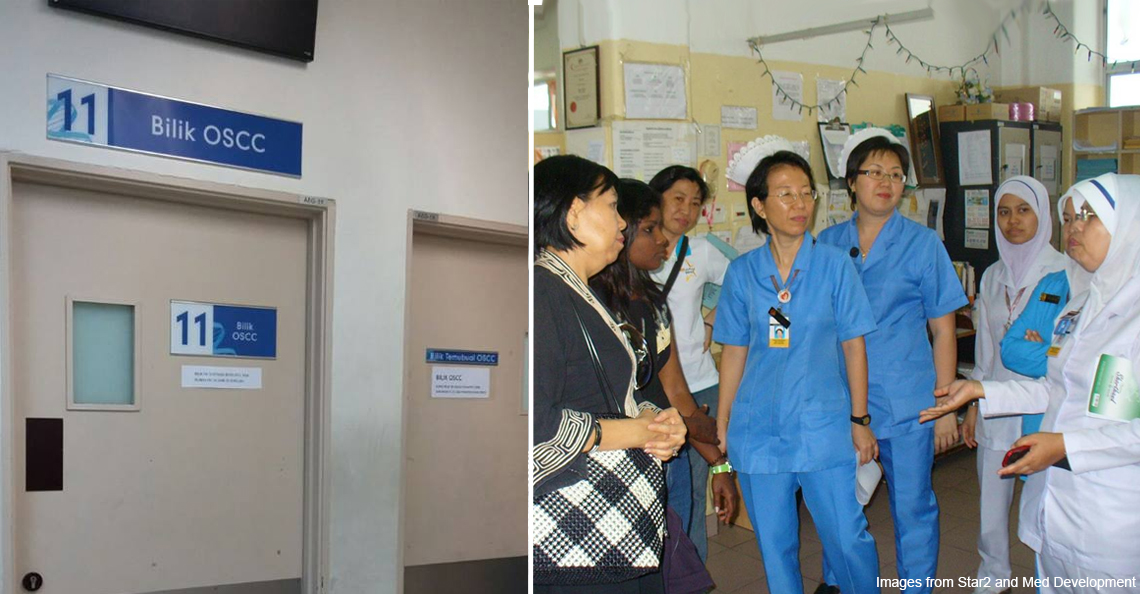Can’t tahan staying indoors during MCO? Psychologists share number one tip to feel better

- 675Shares
- Facebook632
- Twitter8
- LinkedIn8
- Email10
- WhatsApp17
So the Movement Control Order (MCO) has been extended till 14th April and some places are under the enhanced MCO (we’ll explain that in a bit). And since it has been the 13th day of MCO, we’re gonna start our article by asking y’all an important question…
Actually, there has been talks that Covid-19 has been raising concerns of widespread panic (including when you panic buy) and increasing anxiety in individuals who may be exposed to the virus and news about the virus. So, in a way, you may not be alone if you’re feeling any of the things we mentioned in the poll.
And after a week of MCO, the Befrienders reportedly received more calls from some states. And, just recently, a person under investigation for Covid-19 in Malaysia has reportedly taken his own life.
But what is causing all this to happen? Well, one of the possible causes is reportedly…
Too many WhatsApp messages on Covid-19 forwarded to you
Imagine this: in a day, you receive tonnes and tonnes of information on Covid-19 from various sources like news portals, Facebook, Twitter, your aunts and uncles via WhatsApp or sometimes even on Instagram!
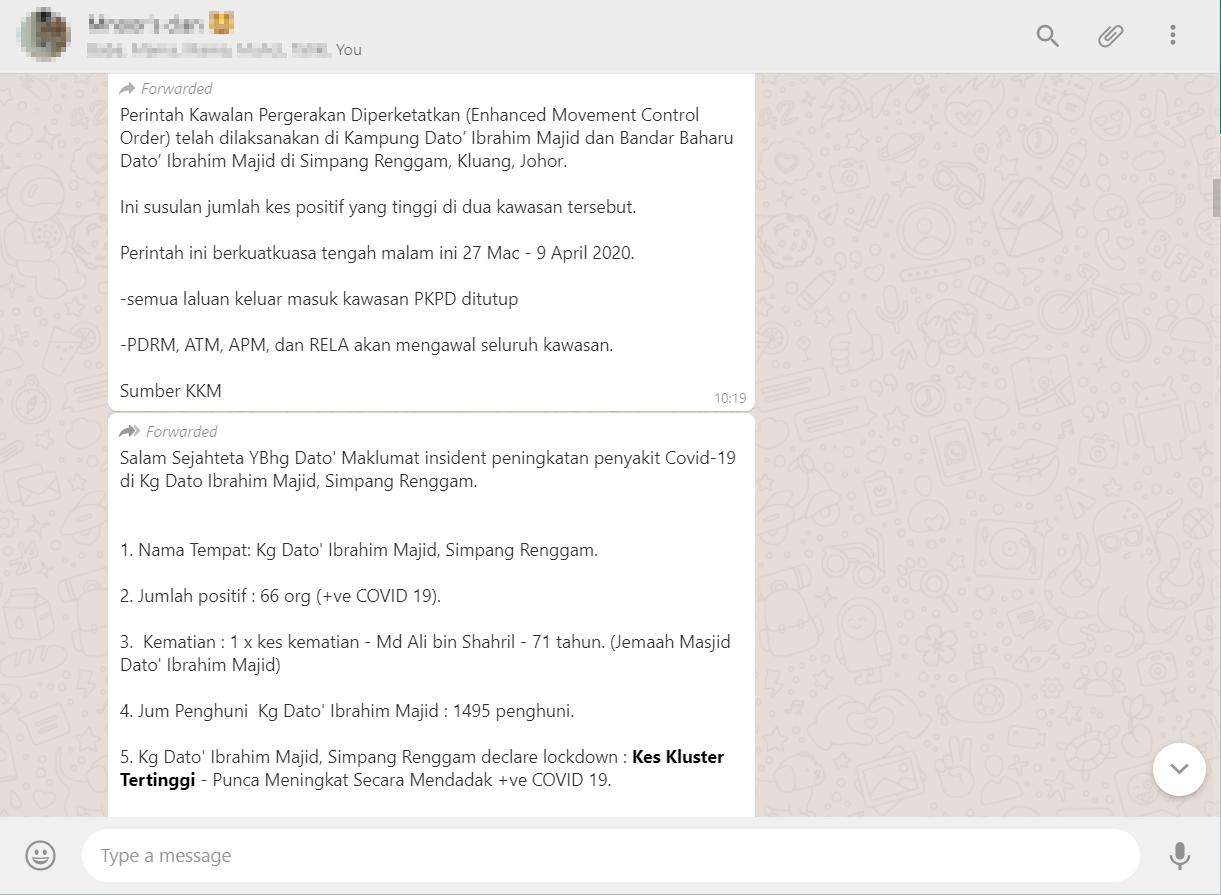
And we’re not just talking about information on, for example, ‘remedies’ for Covid-19 (which are obviously fake anyway) but important and legit updates that we receive on a daily basis. Y’know like the number of cases and reported deaths in a day, which is, at the time of writing, 2,626 and 37 respectively.
Other information could also be how the country now has categorised areas based on coloured zones. And, just recently, two villages in Kluang, Johor and seven villages in Hulu Langat, Selangor are under an enhanced movement order. This is a stricter version of MCO whereby nobody can go out to do anything and essential food items would be supplied by the Social Welfare Department to these villages.
While news like this may seem helpful to some of us, it could give a different side effect for those who may already have underlying mental health issues.
We spoke to the Malaysian Mental Health Association (MMHA), who have collectively gathered opinions from their clinical psychologists. And, based on our conversation with them, we were informed that even before the daily updates began, we have been exposed to various news and pictures like empty shelves or long lines at supermarkets which may trigger anxiety in some people.
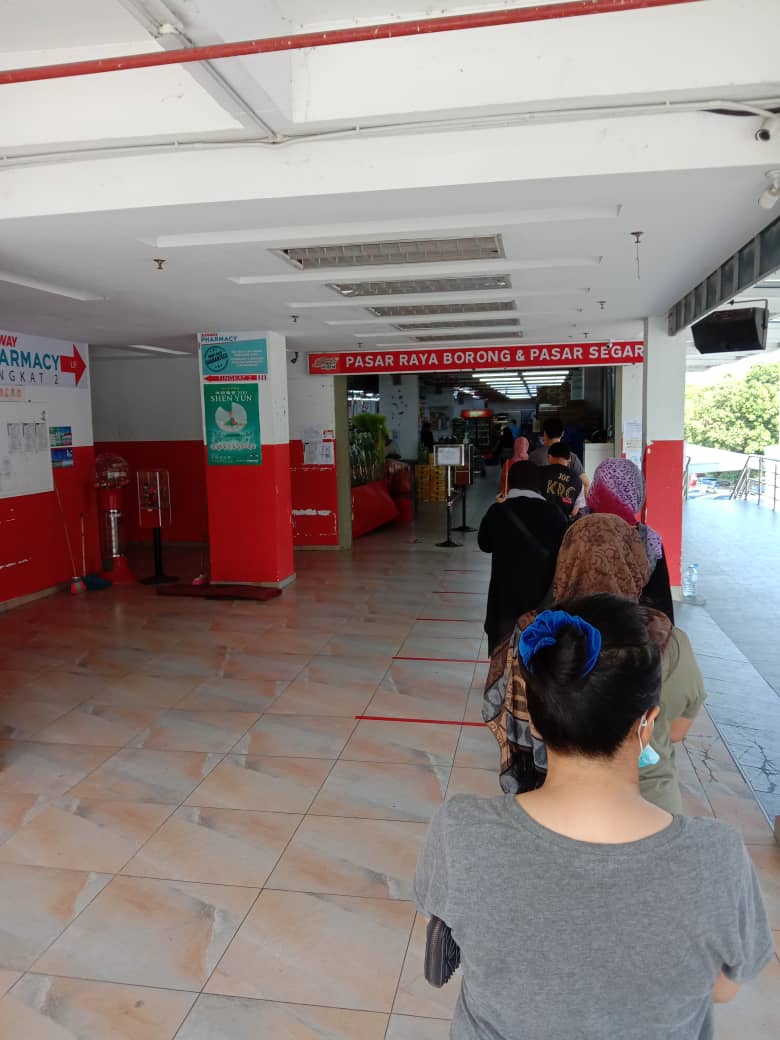
“Such feelings of anxiety could be accompanied with thoughts like whether they would be able to procure enough essentials for the MCO, or the risk of contracting the virus when visiting the supermarkets, and so on.” – MMHA told CILISOS.
MMHA also added that the more people view these types of news and pictures, the greater the effect it has on their mental health.
Besides being exposed to too much information online, Dr Chua Sook Ning of Relate Malaysia told us that you may also get the feeling of boredom, frustration and loneliness as you try to adjust to MCO. This is especially true when you have to isolate yourself from other people.
When you’re adjusting to MCO, Dr Chua said you’re actually adjusting to the loss of familiarity in your daily routine. Besides that, you may also need to adjust to frequent changes and that can be overwhelming as well.
The psychologists at MMHA also agreed, adding that the transition of working in the office, for instance, to working from home can be suffocating to some.
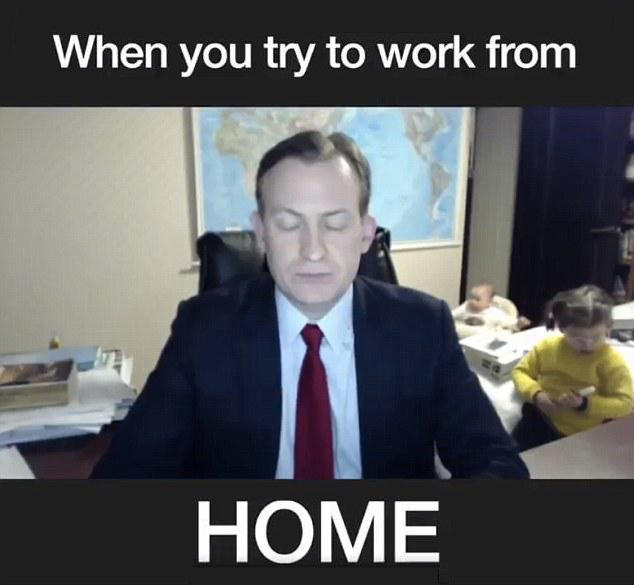
Dr Chua also added that some other contributing factors as to how the current situation could take a toll on the mental health of Malaysians is through an unstable situation, unclear directives, fear of being ill or infecting loved ones and fear of loved ones being ill. MMHA added that fear of unemployment besides financial difficulties in times like this can also take a toll on people’s mental health.
“Psychological effects of economic impacts such as financial difficulty need to be addressed among the general public.” – Alliance for Safe Community (ASC) chairman Tan Sri Lee Lam Thye to NST.
But how do we even deal with all these? Dr Chua and MMHA gave us several tips but one that caught our attention is…
…have a SCHEDULE and actually follow it
When we asked Dr Chua and MMHA how to mentally cope with the MCO, they told us that one of the most important things to do is to have a schedule.
“Preventive measures would be the schedule of activities, social contact, keeping healthy, accept the negative feelings, but also use this as an opportunity to do something.” – Dr Chua told us.
She added that without a schedule, you would have the tendency to feel lost and unproductive because you might end up doing things that you’re not supposed to such as being on social media for hours and hours drawing fruits. According to MMHA, this would eventually make you feel anxious about work progress and deadlines.
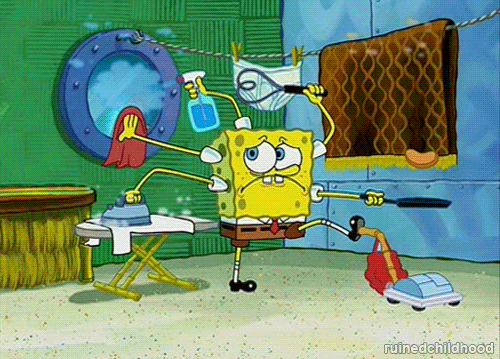
Kenny Lim of the Befrienders added that to avoid losing familiarity in your daily routine, you can try your best to keep to your normal routine and stick to normal working hours. So, if you normally wake up at 7am to go to work at 8am, then you can do the same by waking up at 7am and start doing your work from home at 8am.
The Women and Family Ministry had also come up with a suggestion how to avoid losing familiarity in daily routine for women via its Instagram page. And some of its suggestions are dressing up as if you’re heading to work and wearing make up at home.
Besides having and following a fixed schedule, you can also pick up hobbies that you can either do alone or with a mutual group. Some activities suggested by Dr Chua and Kenny are drawing, reading, sewing, watching movies and exercising, among other things.

MMHA added that educating yourselves with credible and reliable sources of information (you can always fact check info at sebenarnya.my) can also help reduce feeling anxious and overwhelmed by the information you’re getting online. But if this doesn’t help…
“Limit screen time if you are being triggered or feeling overwhelmed. Spend time doing other things instead of being glued to your phone.” – Kenny to us.
And while doing all these can be helpful to yourself, Dr Chua pointed out that you can also help others, who may have mental health issues by simply checking up on them regularly. MMHA said you can do this via phone or video call or even have a study or work from home conference call just to support and check up on each other.
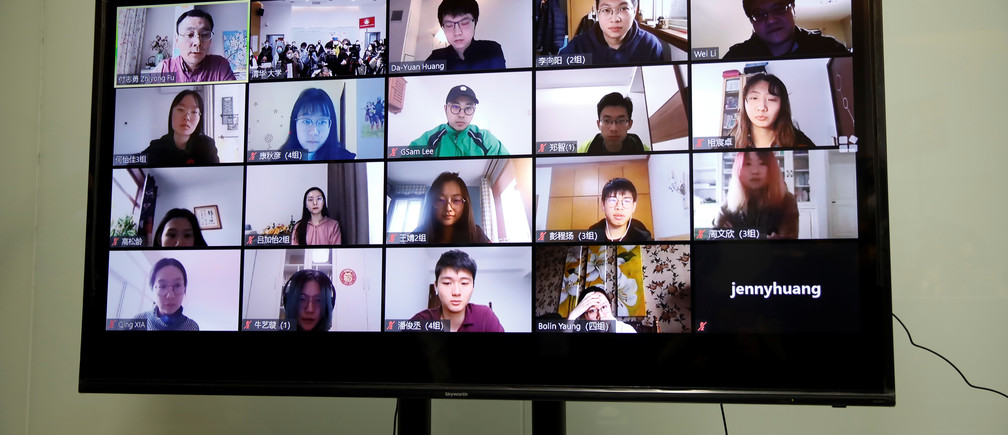
Dr Chua said one simple way to reach out to others is by asking them, “How are you doing?“. This is also why we asked you this question earlier in the intro.
Other than that, you can also give them mental support by finding out and providing them what they need.
“It is also important to understand their needs during this time. Find out what they need and discuss with them on how those needs can be met.” – MMHA.
For instance, some people need their ‘alone time and space’, which might cause trouble since they could be stuck with their family members under the same roof during MCO. But family members can show support by giving them what they need – some space for them to relax or unwind.
As for those who are seeking to reach out, you can always join therapy sessions that are available online. As it turns out, several NGOs like Relate Malaysia and MMHA are providing online therapies for the public, including those who may have just lost their loved ones due to Covid-19 or are suspected of the virus.
Kenny told us that there has been a 13% increase in the number of calls to the Befrienders during the first week of MCO. Out of these calls, 9% of them are related to Covid-19.
However, MMHA pointed out that if you have a strong urge to hurt yourselves then you may wanna go to the hospital instead.
“Given the current situation, many may be overwhelmed and some may experience a strong urge to hurt themselves or end their lives. In this case, we would recommend them to admit themselves into the hospital should they feel like they are at risk of harming themselves.” – MMHA.
At the end of the day, taking care of your mental health is just as important as staying healthy and washing your hands for 20 seconds because…
A good mental health would lead to a better immune system
“I would really encourage everyone to seek support and to take care of their mental health. Good mental health strengthens the immune system.” – Dr Chua
And having a good immune system may be important when facing this pandemic. Studies from affected population in China showed that having health problems like heart disease and diabetes, regardless of any age, is a risk factor for developing some complications of Covid-19.
Those who have these health problems and weak immune system are more vulnerable to get Covid-19 as we rely on our immune systems to recognise the virus as a foreign agent and start working to destroy it. In simple words, people with low immune system are may be defenseless against the virus.
So, in order to take care of our physical and mental health, we may not just have to stay home and wash our hands but we may wanna do what was suggested (we mentioned this under the previous header) by MMHA, Dr Chua and Kenny. And if you need someone to talk to, you can always do so by…
- Joining MMHA or Relate Malaysia‘s online therapy sessions (since they’re both NGOs, certain fees apply),
- WhatsApp MMHA at +6017613 3039 ,
- Call the Befrienders at the hotlines listed here, or
- If you or anyone you know are frontliners and need mental health support, you can contact the numbers in the image below:
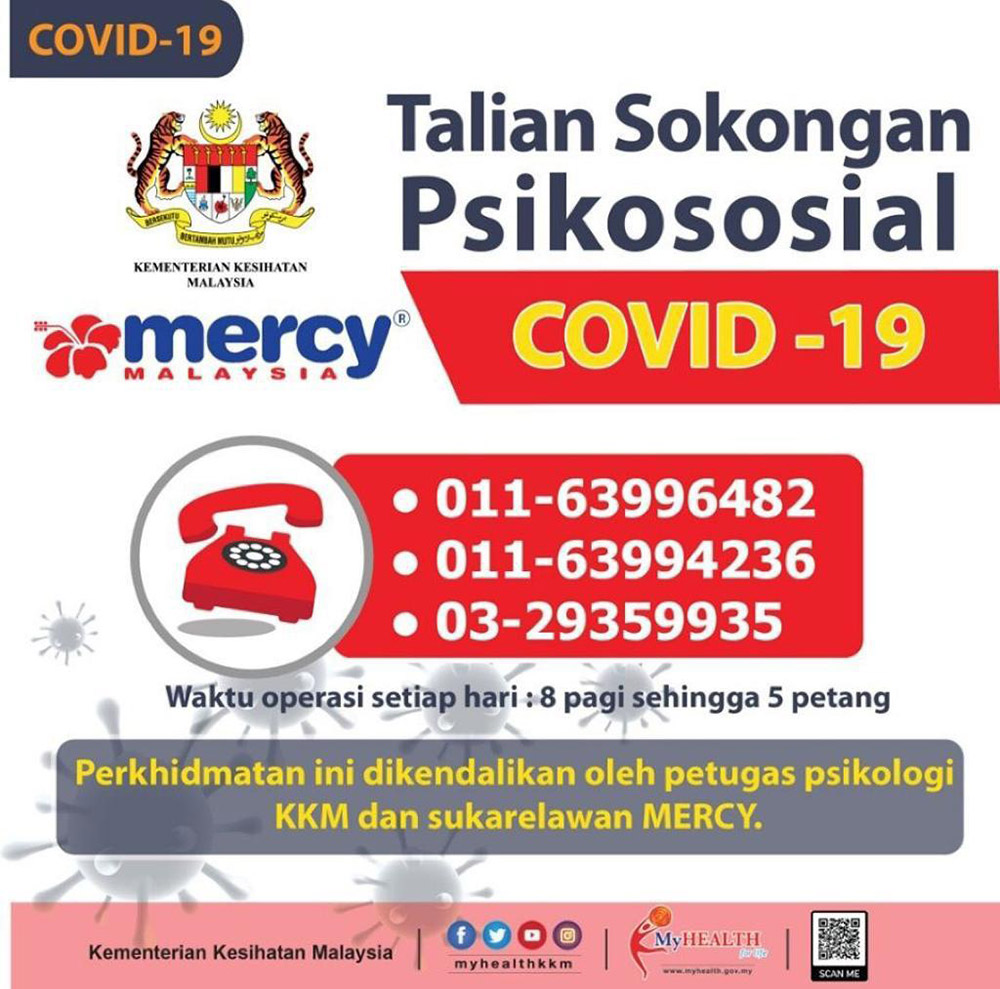
Lastly, if you or anyone you know is suspected of Covid-19 and need to reach out, just remember this:
“Please don’t take this as a death sentence. Get tested, keep your mask on, and get online support. Please, you don’t want to do this alone.” – Dr Chua.
- 675Shares
- Facebook632
- Twitter8
- LinkedIn8
- Email10
- WhatsApp17


